The Independent's journalism is supported by our readers. When you purchase through links on our site, we may earn commission.
Grower champagne: What is it and how is it made?
Grower Champagnes are sparkling wines made in the Champagne region due to the specific climate need. But these blended drinks have grown in popularity in the UK as they offer more complexity and diversity
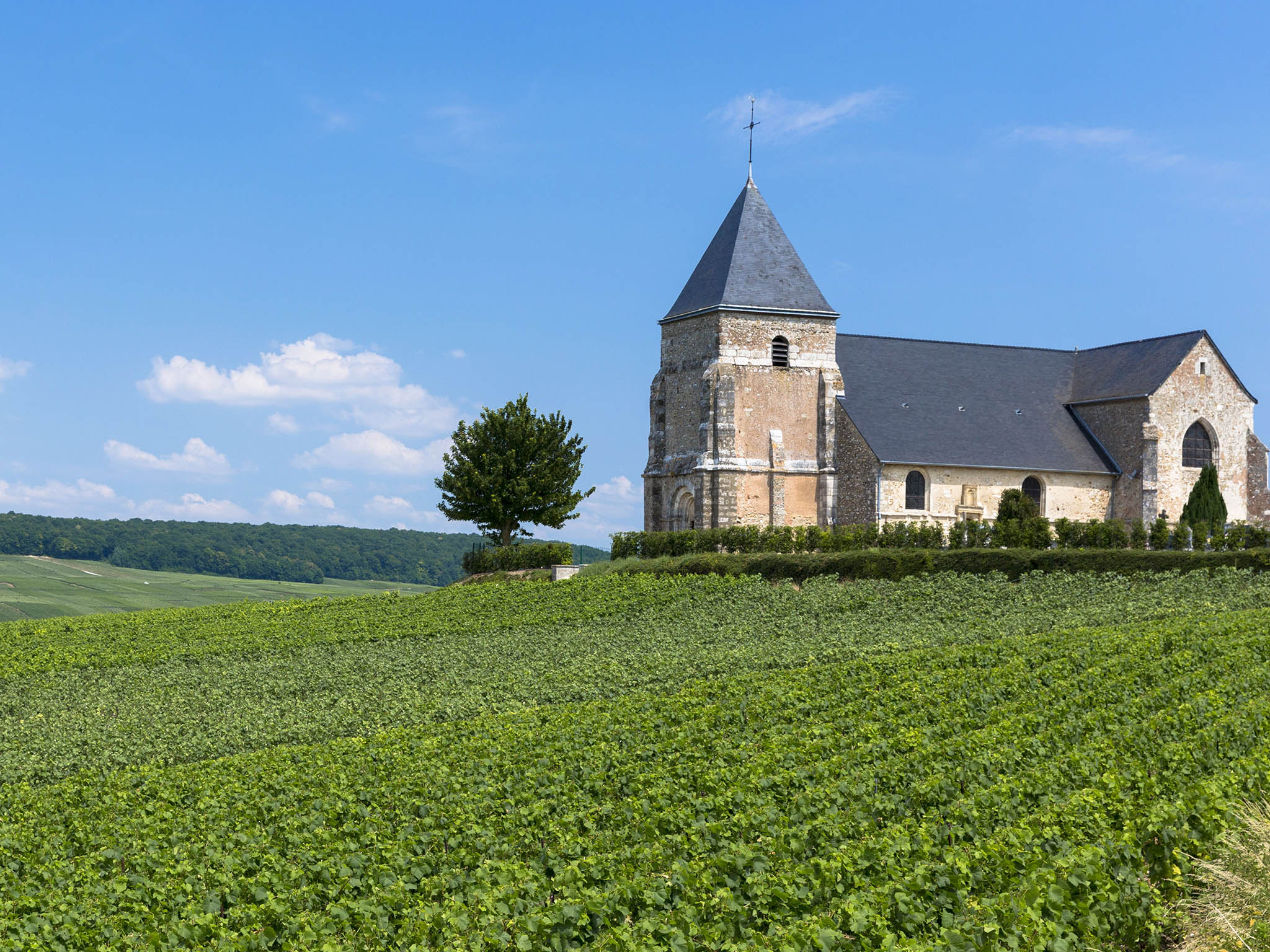
It’s tricky in Champagne – the challenging climate and problems of frost and spring freeze mean winemakers are dependent on blending to compensate for naturally low sugar and very high acidity levels. Parcels from different vineyards, varieties and villages are blended to give character and structure, with older reserve wines used to smooth out any vintage variation and add complexity.
The traditional big Champagne Houses depend on growers – most buy their grapes from many individual vineyards instead of having their own. These Grandes Marques are driven by quantity and the endless pressure to produce a reliable quality that the market can rely on. The majority of the 19,000 growers therefore sell their grapes and in good years, when competition is hot between the houses, co-operatives and négociants – wine merchants who assemble and sell the produce of small vineyards – the price per grape rises and growers thrive. In poor years, however, they can’t rely on the big players, so as they already have the quality grapes it makes sense for them to make their own Champagne, which until recently was only enjoyed by the French themselves.
Over the past few years, certainly in the UK and the US, Grower Champagnes have surged in popularity. They are produced in smaller quantities, with a greater expression of terroir and vintage variation – such as premium wines from neighbouring regions – and drinkers feel a closer connection to what is in their glass, than with a smoothed-out house style.
As Christian Holthausen, international communications director for grower AR Lenoble, points out: “The continuing embrace of independent, family-owned producers in Champagne is encouraging but also represents a global cultural shift. First and foremost, it is an affirmation that we are also producing wines like our neighbours in Burgundy and Alsace. Champagne is a wine-producing region, our wines deserve to be treated as more than commodities or symbols of privilege.”
The aim of growers, especially with a non-vintage, is to make a better wine each year, not a consistent house style. One isn’t necessarily better than the other – after all, growers wouldn’t be around today if it wasn’t for the Grandes Marques buying their grapes – but what drives the winemakers certainly differs.
“I hope we can move towards a position where we value good producers based solely on the quality of their wines and strength of their values, and not based on generic categorisation,” adds Holthausen.
Today’s customer can’t get enough of these boutique styles that offer more complexity and diversity, not to mention better value for money, while small growers are finally able to enjoy the plaudits.
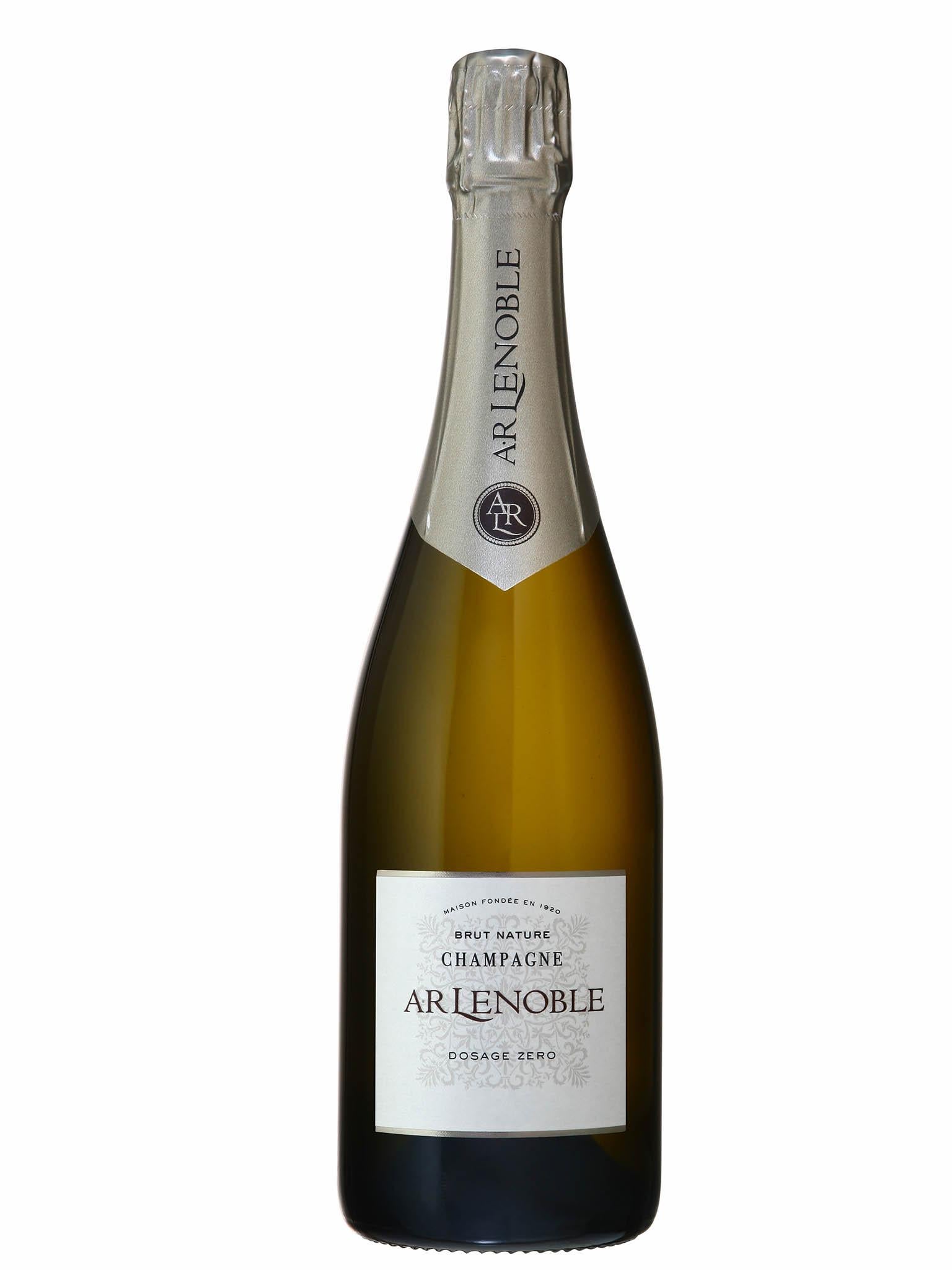
£35, Stannary Wine. Buy it here
AR Lenoble is one of the few Champagne producers to remain entirely family-owned and independent. With a history spanning almost 100 years, brother-and-sister team Anne and Antoine Malassagne are the fourth generation to run the company all by themselves. AR Lenoble’s wines are often defined by the unique and luscious terroir of Chouilly. Its Brut Nature Dosage Zéro features equal parts Chardonnay, pinot noir and pinot meunier from 2010 and five years’ ageing in the cellars in a solera system – normally used for sherry, perpetually blending the wines. The legal minimum ageing for NV Champagne is only 15 months and this extra time adds richness and concentration, which is beautifully balanced by the salinity and freshness of no added sugar before bottling. Pure aromas of almond, honey and white truffle on the nose plus citrus-acidity on the palate, this is a heavenly match for oysters, 24-month aged Comté cheese, prosciutto, or simply savoured on its own.
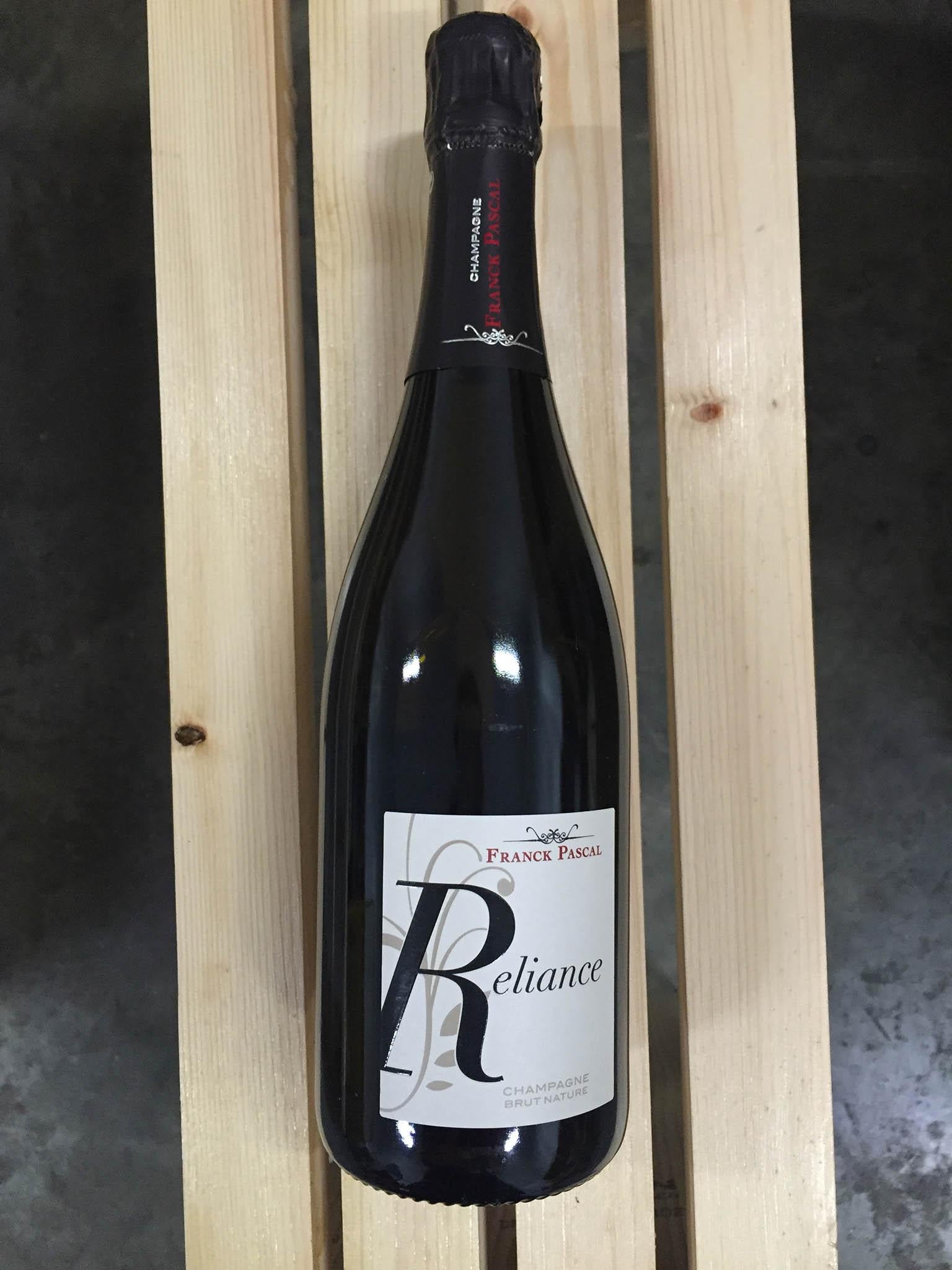
£53, Dynamic Vines. Call 020 7064 6841
Franck Pascal’s precious four hectares, based in the Vallée de la Marne, are planted with 70 per cent pinot meunier, 20 per cent pinot noir and a touch of Chardonnay. Having formerly worked in the French army, Pascal took over his parents’ vineyard in 1994 and was horrified to discover how many of the pesticides used were derived from the same components created in chemical warfare. Over time, he patiently prepped the soils and converted the estate to biodynamic practices in 2005, and the Reliance Brut Nature is a grown-up number. Slightly austere at the beginning, it continues to open up with each sip, with notes of lime, white fruit and vibrant minerality. Pair with salty canapés, goats cheese and fish.
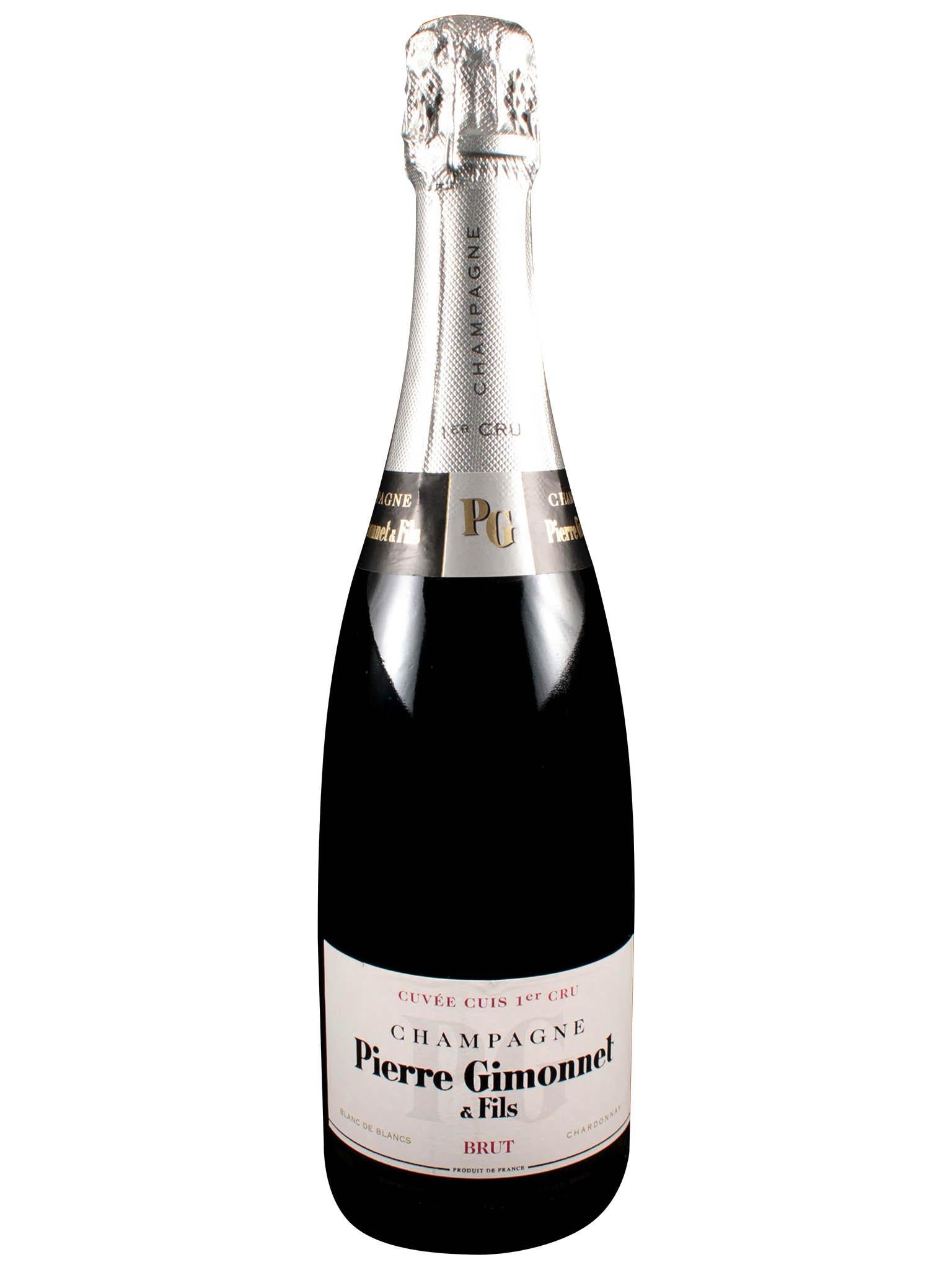
£173.99 (for a case of 6), Armit Wines. Buy it here
Nestled in the heart of the Côte des Blancs, Pierre Gimonnet et Fils grows Chardonnay exclusively on its 25-hectare plot. With 16 hectares in Premier Cru vineyards and 12 in Grand Cru, the family has created a refined marriage between the grape and unique terroir of the different vineyards. Didier and Olivier Gimonnet are the third generation at the helm, producing a beautifully light and pure Blanc de Blancs with apple, citrus and sweet grapefruit and a long, crisp finish. An altogether elegant way to start your evening.
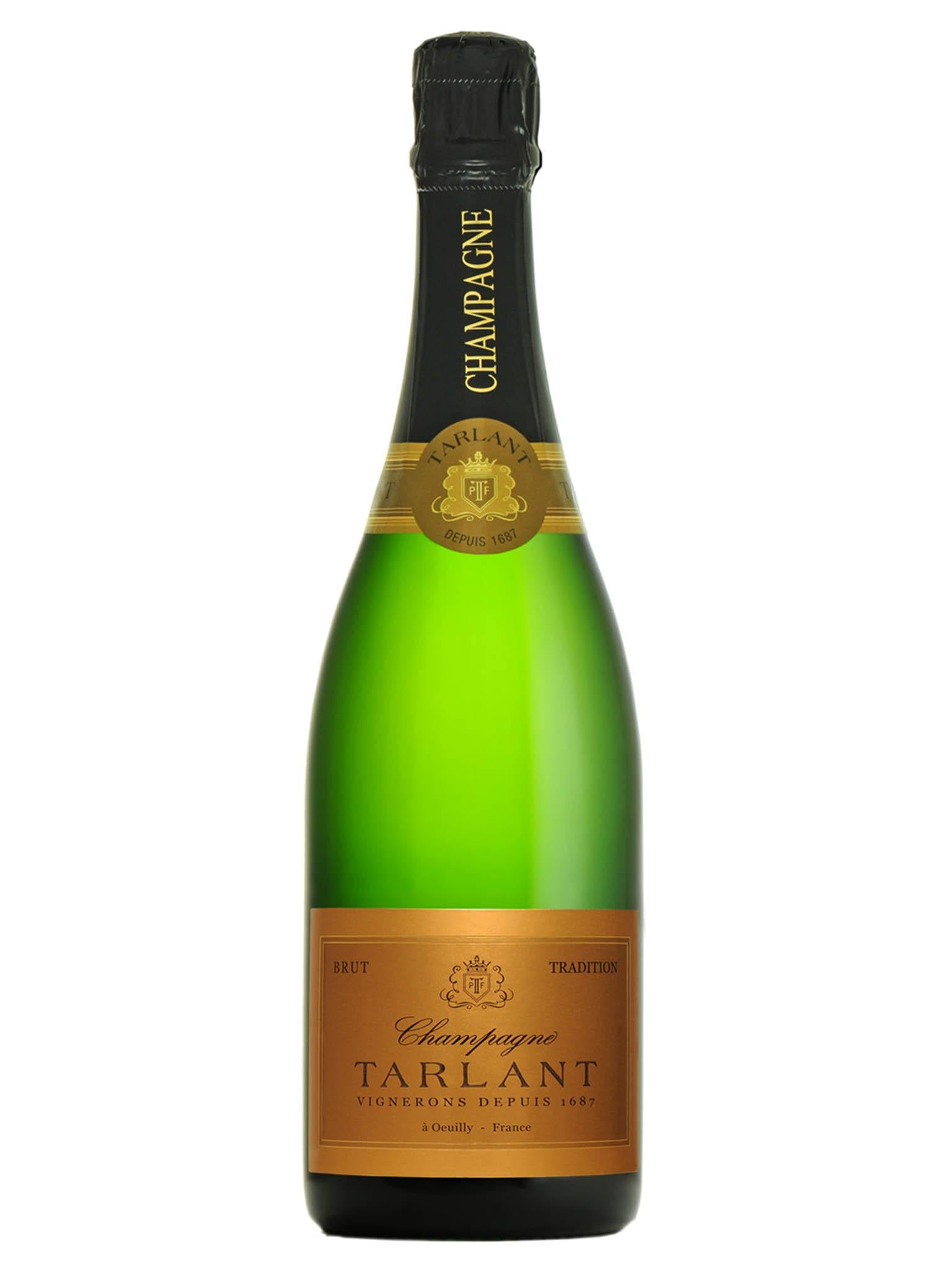
£34.95, Harrods. Buy it here
From the village of Oeuilly in the Vallée de la Marne, the Tarlant family have been making wine since 1687. Today Benoît Tarlant and his sister Melanie focus on producing full-flavoured Champagnes from their 13-hectare estate, adding older wines to the blends for greater depth. The NV Brut, with Pinot Noir and Meunier making up the majority of the blend, is rich and honeyed, brimming with red and stone fruit and a toasted brioche finish.
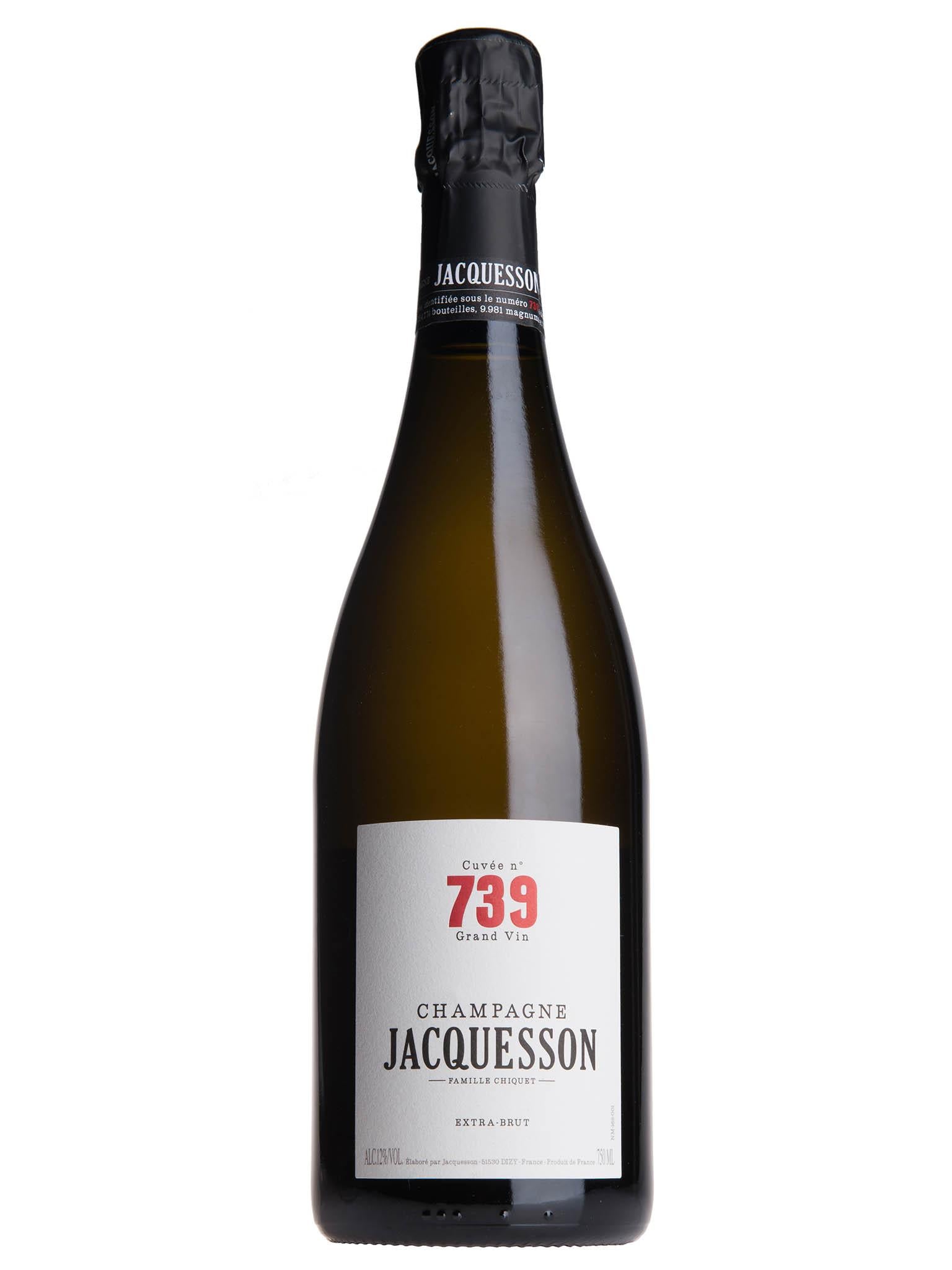
£45, Berry Bros. & Rudd. Buy it here
Based on the 2011 vintage, this is a Chardonnay-driven fizz with 57 per cent of the grape dominating the blend. Labelled Extra Brut (ie 0-6g/l permitted sugar level), dosage is kept to a minimum to preserve the wine’s purity and elegance. Structured and feminine with white fruit and subtle spice, a glass of this will make your day significantly better.
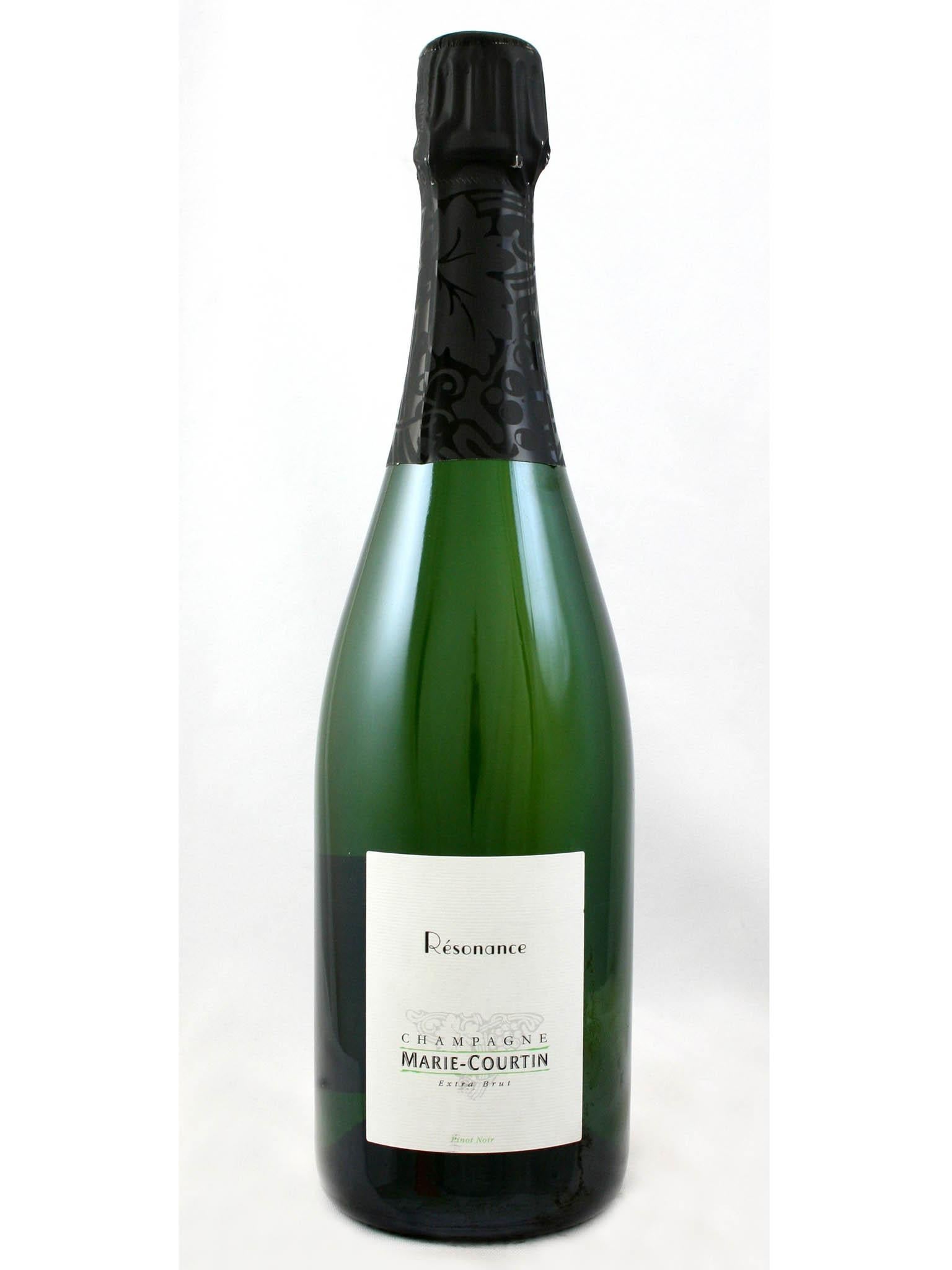
£40.49 Les Caves de Pyrene. Call 01483 554750
A stunning blanc de noirs from Polisot in the Côte des Bar, Resonance is the first wine from producer Dominique Piollot made entirely from Pinot Noir grapes. Fresh with a lively zing and structured depth from the red fruit, this will cleanse the palate and then happily accompany you from starter through main course. A wine with great potential for ageing and with such a small annual production (600-800 bottles) you would be well advised to snap this up.
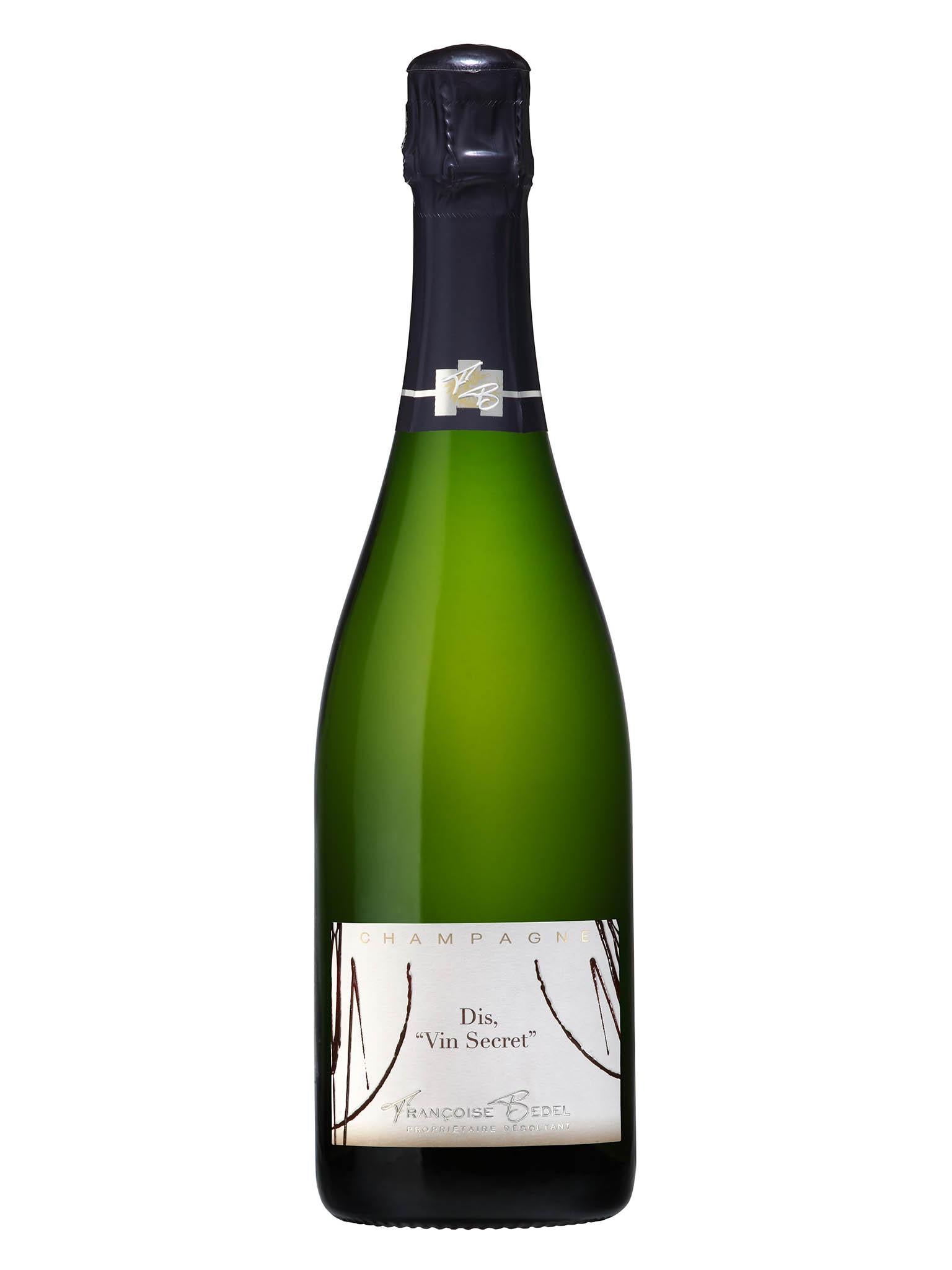
£179.70 (for six), Henry George wines. Buy it here
From Crouttes-sur-Marne, in the Marne Valley, the golden-coloured Dis Vin Secret overflows with cooked apple, orchard fruit, honey and a good intensity of autolytic flavour from eight years spent on its lees. Dominated by Pinot Meunier, with a dose of Chardonnay and a touch of pinot noir, this is rich and complex with a lingering finish. Made from the majority of the 2006 harvest, it is best enjoyed with sushi and white meats.
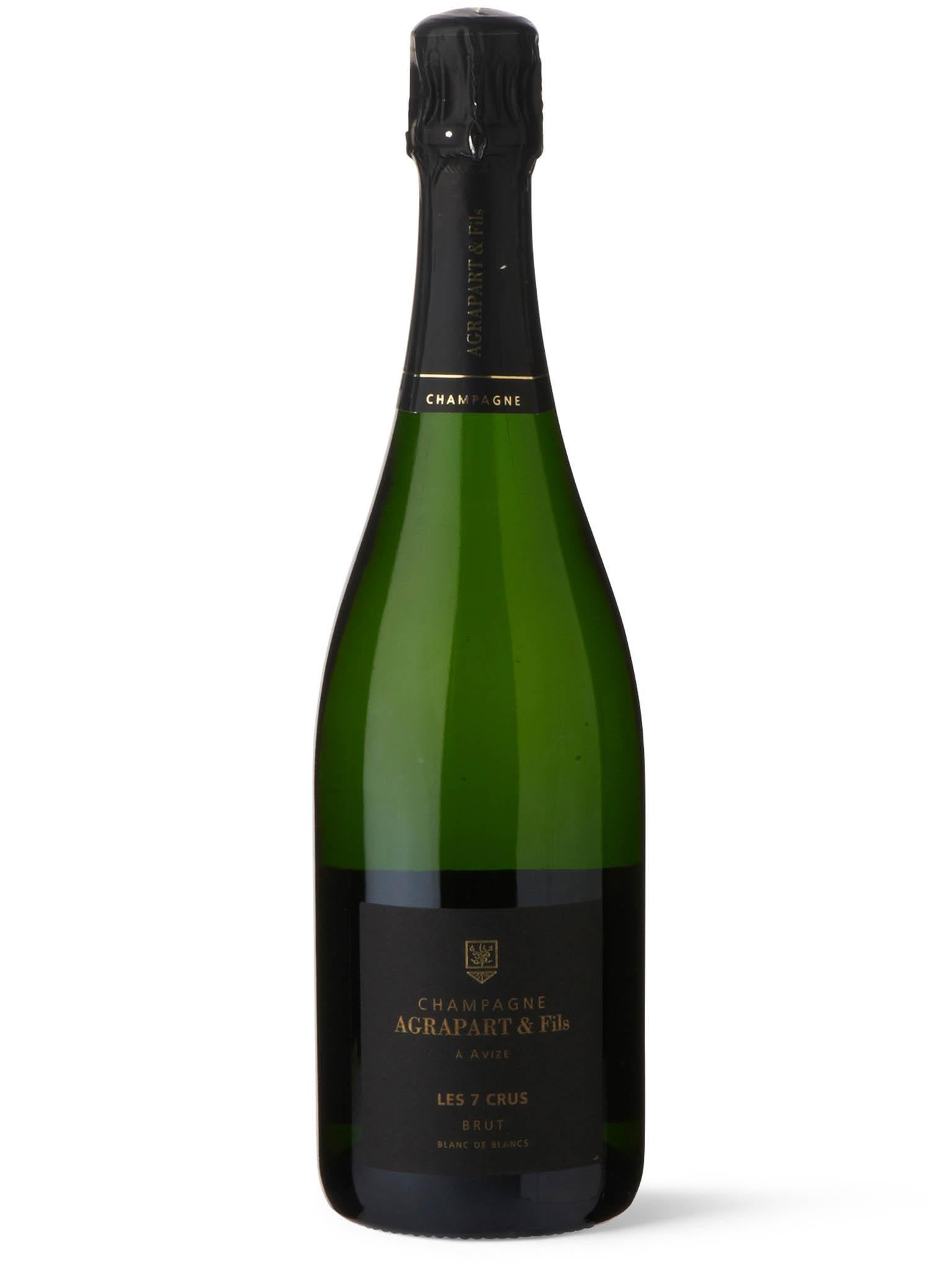
£49.99, Selfridges. Buy it here
Founded in 1894 by Arthur Agrapart and run by brothers Pascal and Fabrice Agrapart since 1984, this is regarded as one of the finest grower estates in the Côte des Blancs. Their 12 hectares of land is spread over 62 parcels, mainly in Grand Cru villages. Les 7 Crus is a blend of seven of these best villages including Avize, Cramant, Ogier, Oiry, Avenay Val d’Or, Mardeuil and Bergères-les-Vertus, with 40 per cent taken from the 2012 harvest and 60 per cent from the 2013 harvest. Pascal works with natural viticulture and cellar practices to give an authentic expression of terroir. Rich baked apples on the nose, complex and savoury on the palate, a touch of spice and a long, nutty finish.
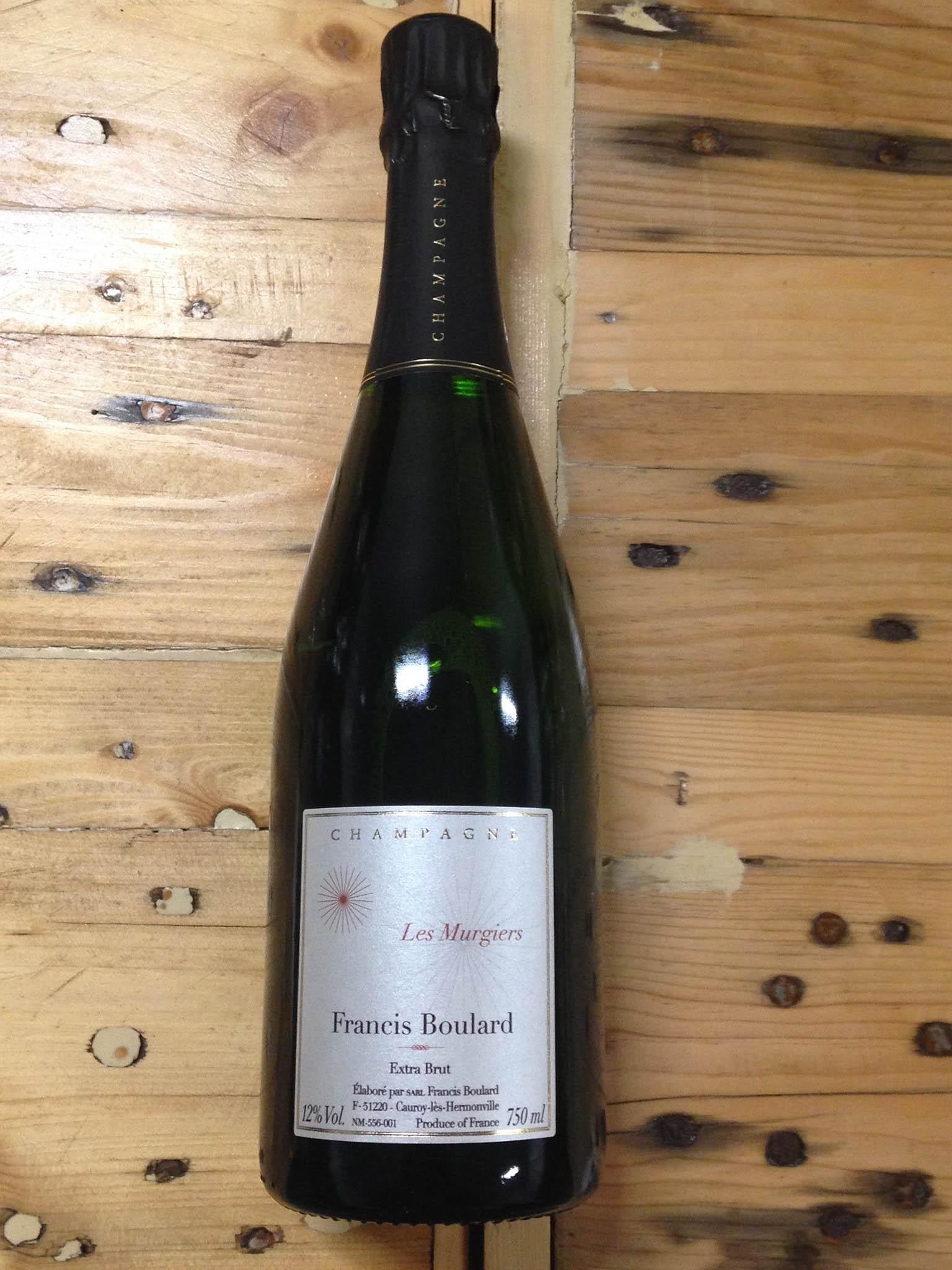
£46, Dynamic Vines. Call 020 7064 6841
The estate of Francis Boulard is mainly located in Cormicy, in Saint-Thierry, on the hills nicknamed the “Petit Montagne de Reims”. This is Champagne that will delight every single taste bud. Made from 100 per cent old-vine pinot meunier, from the 2013 harvest, with 30 per cent from the three consecutive years prior, Les Murgiers boasts nectarine stone fruits, white and red cherry and grapefruit from the get-go, needing no time at all to open up, and with a finish that goes on and on. Serve with fish, white meat or a selection of patés and charcuterie, and attempt to share the bottle.
Waris-Larmandier Cuvée Sensation Brut
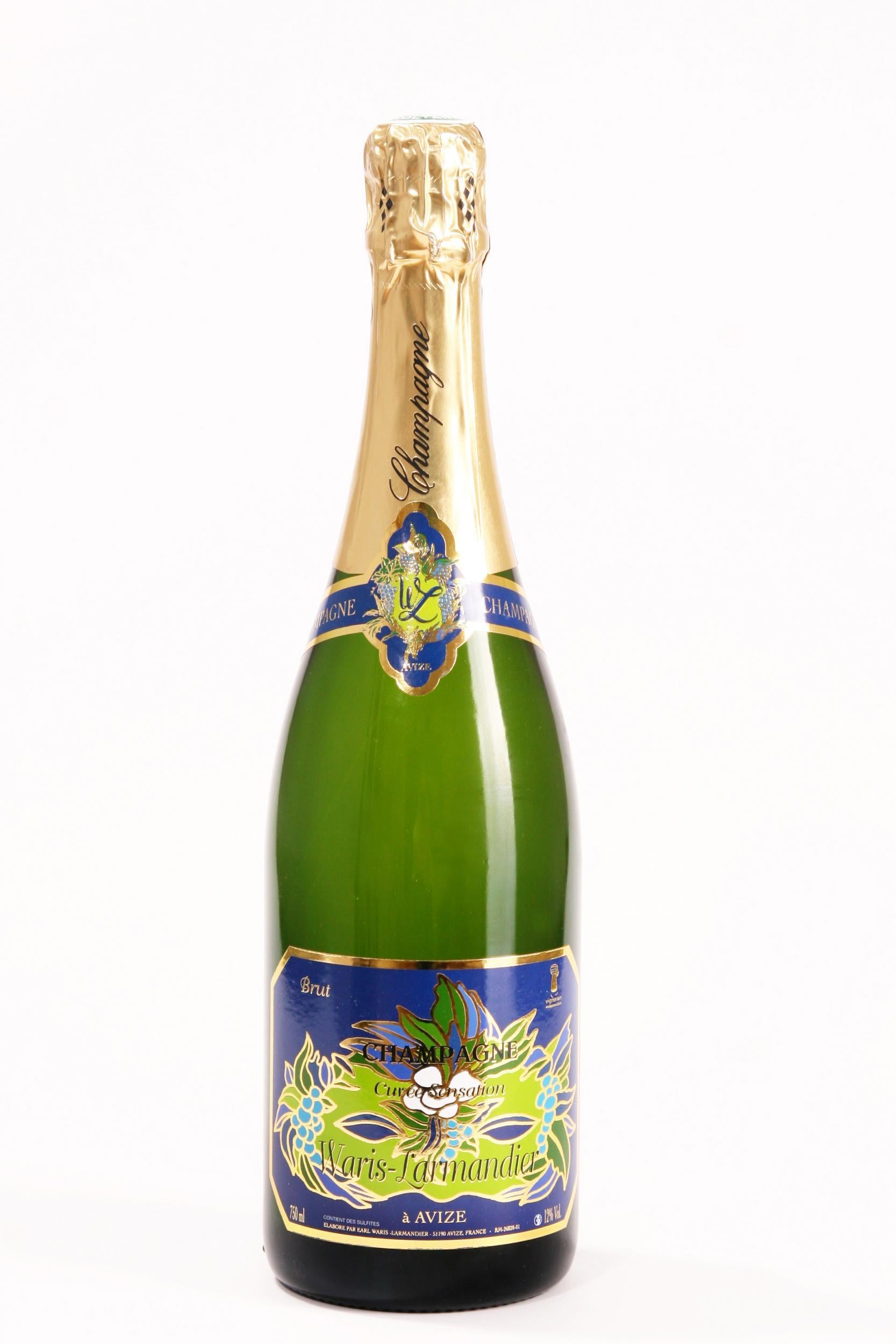
£30, Champagne + Fromage. Buy it here
Marie-Hélène Larmandier, a fifth-generation grower from the Côte des Blancs, started the vineyard in 1989. She is a true artist, with her passion expressed not only in the winemaking but also on the Belle Epoque-style label she designed on the bottle. With her three children now working alongside her, they manage their tiny five-and-a-half-hectare estate to produce wines with subtlety, structure and elegance. The Sensation Brut is fresh and delicate with crisp acidity, honey blossom and citrus – perfectly suited to any celebration, or even brunch, lunch and dinner.
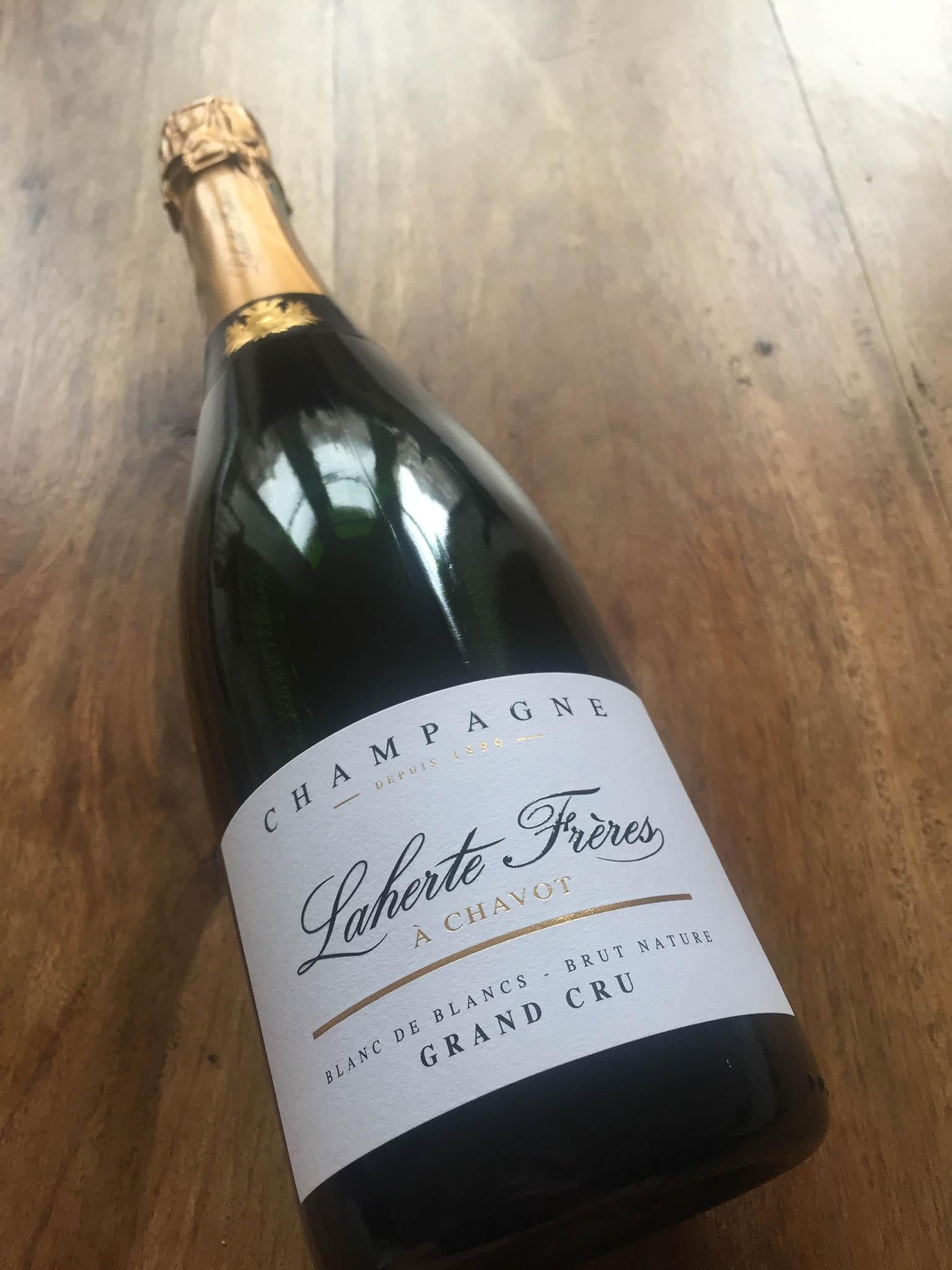
£34.95, Vinterest. Buy it here
With a patchwork of vineyards spread across Epernay, the Côte des Blancs and the Vallée de la Marne, Aurélien Laherte is the sixth generation to lead the charge in the family business. This 100 per cent Chardonnay blanc de blancs uses 30 per cent reserve wines from previous years to give a bone-dry, rich and complex style that invites with green apple, grapefruit pith and toast. They also make a delightful Brut Rosé entirely from 30-year-old pinot meunier vines – think dark cherries, rose petals, white pepper, full-bodied with an edge of chalky minerality.
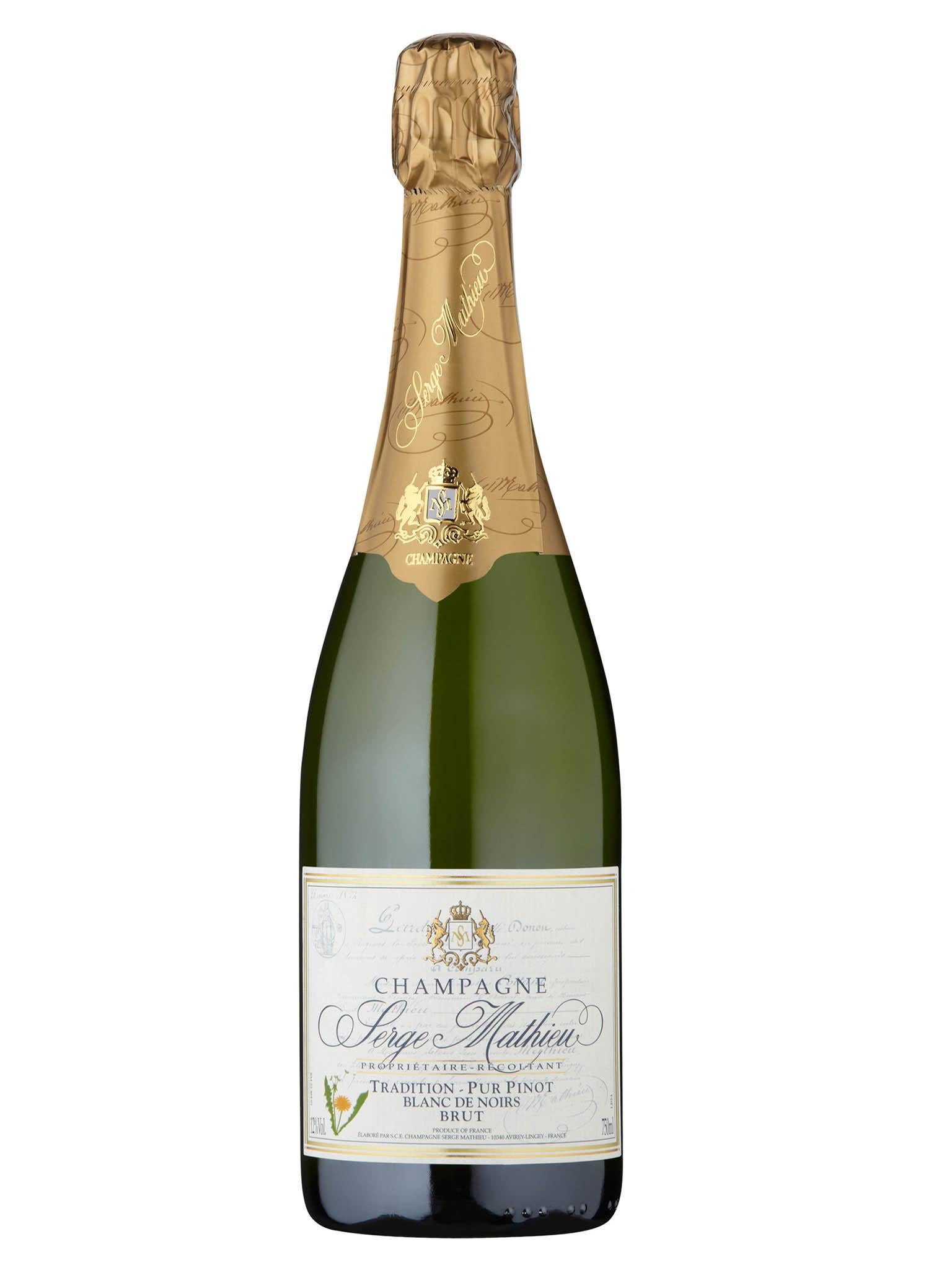
£24.95, Stone, Vine and Sun. Buy it here
The Mathieu family has lived in the small village of Avirey-Ligey since the 18th century and seven generations have passed through the estate. Serge Mathieu started producing his first bottles in 1970 and his daughter Isabelle came aboard in 1987. She and her husband Michel Mathieu-Jacob lovingly tend their 11 hectares of chalky Kimmeridgian soils – from vine to bottle to sale, they do it all. This golden blanc de noirs from 100 per cent pinot noir is very good: biscuit, citrus and ripe red and dried berry fruit on the nose and palate, rich and creamy with a perfectly balanced finish.
Nuria Stylianou is our WSET-qualified wine and spirits columnist. Email her on nuria.stylianou@gmail.com and follow her on Instagram and Twitter @nu_on_the_vine
Join our commenting forum
Join thought-provoking conversations, follow other Independent readers and see their replies
Comments
Bookmark popover
Removed from bookmarks